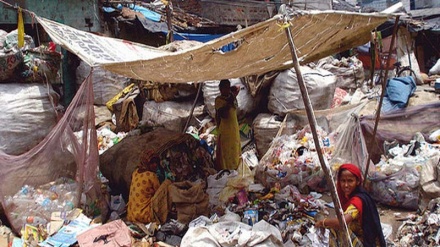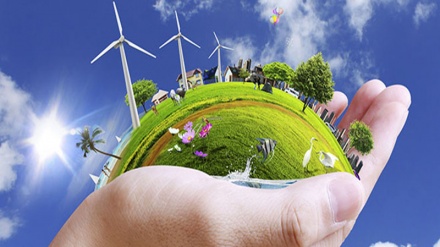We only have one planet to live on (6)
Today, we speak of wetlands and their importance in protection of the environment.
Wetlands are regions, in which shallow waters cover a stretch of land. A variety of definitions have been rendered for the term wetland in the world. However, the most common definition is the one presented in Ramsar Convention. According to this convention, wetlands are regions covered with lagoons, swamps, or natural and artificial basins and ponds, in which stagnated or currents of saline or fresh waters are found.
With due regard to this definition, wetlands cover different types of habitats, such as rivers, lakes, coastlines, mangrove forests, and even coral reefs.
In accordance to existing figures, up to now, 2186 wetlands, covering a total area of 209 million hectares, are enlisted in Ramsar Convention. England with 170 wetlands, Mexico with 142 wetlands, Spain with 74 wetlands, Sweden with 66 wetlands, and Australia with 65 wetlands, top this list. Meanwhile, wetlands in Canada cover a record area of 130,000 square kilometers. Islamic Republic of Iran is home to 22 international wetlands, which have all been registered in Ramsar Convention. One of the conditions set for registration of wetlands in this convention, is that each of these wetlands should host at least 20,000 migrant birds per annum.
Wetlands, which have covered six percent of the planet’s surface, are one of the astounding miracles of nature that play a unique role in protection of aquatics, plants, animals, and humans. The presence of plants and animals in wetlands redouble their beauty, and are of paramount importance due to the biodiversity they create. Wetlands are one of the most productive living environments, highly contributing to the survival of countless plant and animal species. The presence of different species of birds, mammals, reptiles, amphibians, and fishes throughout wetlands manifest their unique role. For instance, out of 20,000 different fish species in the world, more than 40% of them live in wetlands’ fresh waters. The fresh water wetlands are considered as important habitats for pisci-culture.
The presence of birds in wetlands is another good example, which manifests the biodiversity of these regions. In addition to different types of herons, egrets, pelicans, and cranes, a variety of duck and coot species are dependent on wetlands for their existence. Wetlands are in fact the permanent or temporary habitats of a wide range of animal species. The majority of Iran’s wetlands are the habitats of a large number of migrant or water birds in the winter season. Birds, upon their presence in wetlands, in addition to fulfillment of economic interests, create unique scenic landscapes.
The excrements of hundreds of thousands of birds who gather in these regions, leads to savings in usage of chemical fertilizers and causes the fertility of soil. Moreover, the presence of birds in these regions highly contributes to elimination of detrimental insects and rodents, and helps improve the quality of hygiene in the environment.
Wetlands are considered as the vital sources of environment which play roles in the moderation of climate, containment of floods, and prevention of coastal soil erosions. According to experts, the ecological value of wetlands is ten times more than that of forests, and 200 times more than the value of farmlands.
In addition to the biodiversity of wetlands, they are one of the most productive regions in the world. For instance, rice is one of the common products of wetlands, which contributes to provision of the international community’s food. Production of agricultural goods, provision of energy, transportation, and recreational activities in these beautiful regions are part of the economic values of wetlands.
The economists and scientists are assessing and studying the values of living environments, including wetlands, for the ecosystem. Some of the researchers, who have studied wetlands, opine that the value of wetlands is no less than the value of oil wells and gold mines.
The Executive Secretary of the Convention on Biological Diversity, Braulio Ferreira de Souza Dias, in his message on the occasion of Global Day of Wetlands, on February 2, 2015, pointed out the importance and value of wetlands. He noted: Wetlands are one of the most valuable ecosystems, while their most important benefit is optimization and promotion of water’s safety level. Wetlands provide fresh waters, and purify waters from detrimental materials. Wetlands also provide food, such as fish and rice, for man. Under especial climatic conditions, wetlands prevent floods and drought, while also preventing climate changes, especially given that wetlands absorb carbon dioxide emissions twice as much as forests.
So, it can be said that wetlands are one of the most valuable divine blessings. However, unfortunately, man has contaminated wetlands and has endangered their existence. In fact, according to existing figures, as of the year 1900 AD to this day, roughly 64% of wetlands have been destroyed worldwide, as the result of interference of the contemporary man in nature. This unwanted incident is not just limited to developing countries, and even developed states have grappled with this problem.
Meanwhile, some countries, such as Japan, have scientifically studied the value of wetlands, and have decided to protect them.
RM/ME


